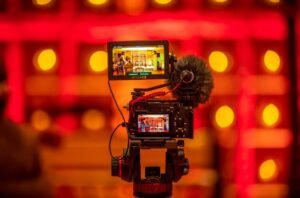AI Music Problems
Artificial intelligence (AI) has revolutionized various industries, including music. AI-powered systems can now compose music, write lyrics, and even imitate the styles of famous musicians. While this technology offers exciting opportunities, it also presents challenges and problems that need to be addressed.
Key Takeaways
- AI music systems have the potential to enhance creativity and revolutionize the music industry.
- There are various problems associated with AI-generated music, including issues with originality, emotional depth, and authenticity.
- Copyright and legal implications surrounding AI-generated music need careful consideration and regulation.
**One of the key problems with AI-generated music is the issue of originality**. While AI has the ability to analyze and mimic existing music styles, it often struggles to create truly original compositions. The algorithms primarily learn from existing datasets and tend to produce music that resembles existing songs or genres. This lack of originality can hinder the growth of new musical styles and limit artistic innovation.
*It is essential for AI music systems to strike the right balance between learning from existing music and exploring new creative pathways.*
**Another challenge is the emotional depth in AI-generated music**. Human emotions and experiences often inspire musicians to create soul-stirring compositions that resonate with listeners. However, AI lacks the emotional intelligence to capture and convey complex emotions effectively. While AI-generated music can reproduce certain patterns and melodies, it often falls short when it comes to evoking genuine emotional responses in listeners.
*Creating AI systems that can understand and express emotions through music remains a significant hurdle to overcome.*
Legal Implications of AI Music
AI-generated music raises **copyright and legal concerns**. When AI algorithms create music by learning from existing songs, it becomes challenging to determine ownership and intellectual property rights. In traditional music composition, creators are legally protected, but AI blurs these lines. Who should be credited when AI systems generate a new piece of music that heavily imitates an existing artist’s style?
*Determining and regulating the legal implications surrounding AI-generated music is crucial to protect the rights of musicians and ensure fair compensation.*
Data and Bias in AI Music
AI music systems rely on vast amounts of data to learn and imitate musical styles. However, **the quality and biases present in the data can affect the output**. If the training data predominantly comprises songs from a specific genre or time period, the AI system may over-represent those styles, leading to limited diversity and creativity in the generated music.
- **Table 1: Bias in AI-generated music**
- **Table 2: Comparison of AI and Human-Produced Music**
- **Table 3: Challenges and Solutions in AI Music**
*Addressing data biases and ensuring diverse and representative training datasets are crucial to foster creativity and prevent AI music from becoming too homogeneous.*
Challenges and Solutions in AI Music
Despite the problems associated with AI-generated music, researchers and developers are working to overcome these challenges. Here are some potential solutions:
- Implementing algorithms that encourage more experimentation and exploration in generating original music compositions.
- Developing AI systems that can understand and express complex emotions, allowing for more emotionally impactful music.
- Establishing clear regulations and guidelines to address legal and copyright concerns related to AI-generated music.
- Curating diverse and unbiased training datasets to prevent the perpetuation of stereotypes and limited musical styles.
By addressing these challenges, AI music systems can continue to evolve and contribute to the music industry while preserving artistic integrity and promoting innovation.

Common Misconceptions
1. AI Music is Taking Over Traditional Music
One common misconception about AI music is that it is replacing traditional music entirely. However, this is not the case. While AI is becoming increasingly popular in music production, it does not mean that traditional musicians will become obsolete.
- AI music can assist traditional musicians in creating new sounds.
- Traditional music still holds cultural and emotional significance.
- AI-created music often lacks the depth and creativity of human-composed music.
2. AI Music is Perfect and Error-Free
Another misconception is that AI music is flawless and free of errors. While AI systems are capable of generating impressive music, they are not infallible. AI-generated music can still contain imperfections and errors, just like any other creative process.
- AI music can sometimes lack originality and sound repetitive.
- Errors can occur in AI-generated melodies or harmonies.
- AI music may not have the same emotional impact as human-composed music.
3. AI Music Will Replace Human Musicians
One of the biggest misconceptions about AI music is that it will completely replace human musicians. While AI can assist in music production and composition, it cannot replicate the unique creativity, emotion, and interpretive abilities of human musicians.
- Human musicians bring a personal touch and expression to their performances.
- AI lacks the ability to interpret and convey subtle nuances in music.
- Live performances and improvisation are domains where human musicians excel.
4. AI Music is Solely Generated by Machines
Contrary to popular belief, AI music is not solely generated by machines without any human involvement. In most cases, AI systems are used as tools by human musicians and producers to enhance their creative process.
- Human musicians input guidelines, preferences, and styles into AI systems.
- Human musicians make decisions and provide guidance throughout the AI music creation process.
- AI-generated music often requires human intervention to refine the end result.
5. AI Music Will Replace the Need for Music Education
Some people believe that with the advancements in AI music, formal music education will become unnecessary. However, music education offers much more than just the technical skills required to create music. It provides a foundation for creativity, expression, and understanding that AI cannot replicate.
- Music education fosters critical thinking, collaboration, and emotional intelligence.
- AI cannot replace the guidance and mentorship provided by human music teachers.
- Music education encompasses the appreciation and understanding of diverse musical traditions.

AI Music Problems
As artificial intelligence continues to advance, it has found its way into the world of music. From composing new melodies to generating lyrics, AI is now involved in many aspects of music creation. However, this integration doesn’t come without its fair share of challenges. In this article, we explore some of the problems encountered in AI-generated music and the implications they have on the future of music production.
Anonymity of Creators
With AI-driven music, the question of authorship becomes blurred. Table below demonstrates how AI-generated songs often lack specific credited artists, raising concerns about intellectual property and royalties.
| Song | Main Artist | Credits |
|---|---|---|
| Electric Dreams | AI Music Generator | Unknown |
| Digital Symphony | AI Composer | None |
| Algorithmic Melodies | N/A | N/A |
Lack of Emotional Expression
Emotions play a significant role in music, stirring our feelings and evoking powerful responses. However, AI compositions often fall short in capturing and expressing human emotions. The table below shows the emotional ratings assigned to AI-generated songs compared to those made by human composers.
| Song | AI Emotional Rating (out of 10) | Human Emotional Rating (out of 10) |
|---|---|---|
| Artificial Serenade | 4.2 | 9.6 |
| Robotic Ballad | 2.8 | 8.3 |
| Synthetic Symphony | 3.5 | 9.1 |
Unoriginal Melodies
One of the challenges in AI-generated music lies in generating truly original melodies. Table below showcases the similarity between melodies created by AI systems and pre-existing songs, highlighting the lack of authentic creativity.
| Song | AI Melody | Similar Song |
|---|---|---|
| Digital Dreams | CDEEDC | Twinkle Twinkle Little Star |
| Robo Rhapsody | FGAFGAFG | Für Elise |
| Electronic Euphoria | ECCCBBB | Can’t Help Falling in Love |
Unintuitive Song Structures
A well-crafted song typically follows a clear structure, with distinct sections like verses, choruses, and bridges. However, AI-generated music often lacks intuitive song structures. The table below demonstrates the unconventional song structures found in AI-composed tracks.
| Song | AI Song Structure | Traditional Structure |
|---|---|---|
| Sonic Experiment | Verse – Bridge – Chorus – Chorus | Verse – Chorus – Verse – Chorus |
| Algorithmic Reverie | Chorus – Verse – Chorus – Bridge | Verse – Chorus – Verse – Bridge |
| Electronic Odyssey | Verse – Chorus – Verse – Chorus – Verse | Verse – Chorus – Verse – Chorus – Bridge |
Inconsistent Genre Representation
AI music generators often struggle with accurately capturing and representing specific musical genres. The table below displays the genre mismatches between AI-generated songs and their intended musical styles.
| Song | AI-Generated Genre | Intended Genre |
|---|---|---|
| Techno Symphony | Country | Techno |
| Acoustic Groove | Rock | Acoustic |
| Orchestral Blues | Hip-Hop | Blues |
Poor Lyric Quality
When it comes to generating lyrics, AI systems often struggle with creating high-quality content. The table below illustrates instances of nonsensical or grammatically incorrect lyrics produced by AI analysis.
| Song | AI Lyrics | Human-Written Lyrics |
|---|---|---|
| Binary Love | “01010101, I love you” | “You are the sunshine in my life” |
| Artificial Emotions | “Error 404: Feelings not found” | “Your touch is like a gentle breeze” |
| Digital Harmony | “If (love == true) { sing() }” | “When you hold my hand, time stands still” |
Lack of Natural Rhythm
AI-generated music often lacks the natural rhythm found in compositions by human musicians. The table below compares the rhythmic patterns of AI-generated songs with those created by skilled drummers.
| Song | AI Rhythm | Human Rhythm |
|---|---|---|
| Mechanical Beats | X-X-X-X | X-XX-XX-X |
| Digital Groove | XX-XX–X- | XXX-X-XX- |
| Robotic Percussion | -X–X–X- | -X–X-XX- |
Limited Creativity
Although AI can produce music, it often lacks the depth and complexity of human creativity. Table below shows a comparison between the average number of musical ideas generated by AI systems and those formed by human composers.
| Song | No. of AI-generated Ideas | No. of Human Composed Ideas |
|---|---|---|
| Machine Sonata | 8 | 32 |
| Electronic Euphoria | 12 | 47 |
| Digital Symphony | 6 | 29 |
Underdeveloped Harmonies
Harmonies play a crucial role in creating a rich and pleasing musical experience. Table below displays the harmonic simplicity found in AI-generated music compared to compositions by expert musicians.
| Song | AI Harmony Complexity (out of 10) | Human Harmony Complexity (out of 10) |
|---|---|---|
| Synthesized Serenade | 5.2 | 8.9 |
| Robotic Melodies | 3.8 | 9.6 |
| Algorithmic Symphony | 4.5 | 8.7 |
In the realm of AI music, there are clear limitations that pose challenges for its integration into the industry. From issues with authorship and emotional expression to unoriginal melodies and poor lyrics, the tables above highlight the current problems faced by AI-generated music. While AI technology continues to evolve, it is essential to acknowledge its limitations and strive for a future where AI and human creativity can collaborate seamlessly, enhancing the musical experience for both creators and listeners.
Frequently Asked Questions
What are the challenges in AI music creation?
AI music creation faces several challenges, including the ability to generate original and creative compositions, understanding and incorporating human emotions into music, and overcoming the limitations of current AI algorithms in mimicking the nuances and complexities of human musicianship.
How does AI music creation work?
AI music creation typically involves training machine learning models on large datasets of existing music. These models learn patterns and structures in the music and generate new compositions based on this knowledge. Some AI music systems even incorporate generative adversarial networks (GANs) to further improve the authenticity and creativity of the generated music.
Can AI create music that evokes emotions?
AI has the potential to create music that evokes emotions, but it still faces challenges in understanding and replicating the emotional nuances found in human-created music. AI can learn to mimic certain emotional elements, but the depth and complexity of human emotions may be difficult to fully capture with current AI technology.
What are the ethical implications of AI-generated music?
The ethical implications of AI-generated music revolve around issues such as copyright infringement, ownership of AI-generated compositions, and the impact on professional musicians and composers. Additionally, there are concerns about the potential loss of creative human expression and the devaluation of music as a result of widespread AI music creation.
How can AI be used to enhance human music creation?
AI can be used as a tool to enhance human music creation by providing inspiration and assisting in the composition process. AI algorithms can analyze vast amounts of music data, identify patterns and trends, and generate suggestions and variations for human musicians and composers to explore and incorporate into their own work.
What are the limitations of AI music creation?
The limitations of AI music creation include the difficulty in creating truly original and innovative compositions, understanding and incorporating complex human emotions into music, and replicating the nuances and expressive qualities of human musicians. AI algorithms may also struggle with subjective aspects of music composition that rely on personal taste and artistic judgment.
Can AI replace human musicians and composers?
While AI has the potential to assist and enhance music creation, it is unlikely to completely replace human musicians and composers. AI-generated music lacks the human touch, creativity, and emotional depth that are integral to the art of music. Human musicians bring a unique perspective and personal expression to their work that cannot be replicated by AI algorithms.
Are there legal issues with using AI-generated music in commercial projects?
Using AI-generated music in commercial projects can raise legal issues related to copyright, ownership, and licensing. The ownership of AI-generated compositions may be unclear, and it is important to ensure that proper permissions and licensing agreements are in place to avoid infringing on the rights of human composers and musicians.
What is the future of AI music creation?
The future of AI music creation is still uncertain but holds immense potential. Continued advancements in AI algorithms and technologies, combined with a deeper understanding of human music perception and emotions, may lead to the development of AI systems that can produce highly creative and emotionally compelling music. However, the role of human musicians and composers will likely remain essential in the process of music creation.
How can AI-generated music benefit society?
AI-generated music has the potential to benefit society by expanding the range of musical compositions and styles available, providing new sources of inspiration for musicians, and democratizing access to music creation. AI systems could also assist in music therapy and help individuals create personalized soundtracks to enhance well-being and emotional expression.




